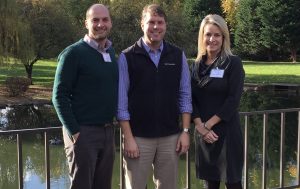The Capstone Rural Health Center, a partner of The University of Alabama’s Capstone College of Nursing, recently received the state of Alabama’s only grant from the U.S. Department of Health and Human Services’ Health Resources and Services Administration to increase access to substance abuse prevention and treatment services in rural populations.

The center, located in Parrish in Walker County, received a $200,000 grant from the federal agency to aid the Rural Walker County Opioid Use Response Planning Project. The funding will help in addressing the prevention, treatment and recovery of those dealing with opioid abuse and support the Northwest Walker County Opioid Use Disorder Consortium.
Drs. Monika Wedgeworth and Joshua Eyer, both assistant professors in the College, are members of the consortium and work closely on the project.
“As consortium members, our job was to look at the data and investigate the severity of opioid abuse in the county,” said Wedgeworth. “From there, we developed prevention strategies through education about addiction and treatment. We also evaluated treatment and recovery strategies that are currently available and looked for ways to expand those.”
According to the Centers for Disease Control and Prevention, Walker County is the 37th most at-risk county in the United States for risk of HIV and hepatitis C infections due to injection drug use. In 2014, nearly 3% of residents over the age of 11 reported having a drug dependence and almost 5% reported non-medical use of pain relievers. Many of the county’s rural communities don’t have access to general health care, much less treatment for opioid use disorder treatment.
The consortium consists of local law enforcement, faith-based organizations and schools, among other community stakeholders that are collaborating to fight opioid use disorder.
“The planning grant is so vital because it gets everyone to the table working on the problem together,” said Eyer. “It establishes a community-based initiative rather than an investigator-based initiative like we typically see. We are very pleased to be part of CRHC’s great team on this project and look forward to future efforts as well.”
Wedgeworth and Eyer plan to continue working closely with Capstone Rural Health Center on multiple projects to improve the health of residents of Walker County.
